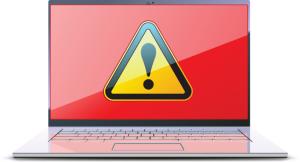
It is common for workplaces to have a firewall that prevents certain websites from being visited. Along with blocking certain websites, firewalls usually keep track of all the different websites that have been visited and by who.
Any time a website is visited that has been blacklisted (blocked), this usually triggers an alert to the IT department or management, so they can look over who tried to connect to a blacklisted site. From there, if IT or management feel it is necessary, they could look over the entire history of websites that were visited by a user or a group of users.
Now, let’s say for some odd reason that the business does not have a firewall or other device that keeps records of websites visited – could websites that were visited still be discovered?
Well, the computer someone uses also keeps records of websites that they have been visiting, which can be accessed by IT.
Some clever users might be able to remove their footprints from their workstation computer, but they may not have access to something like that.
There is another way that websites visited from a workplace can be tracked without a firewall or looking into the computer files.
If the websites visited warrant any legal action or an investigation is happening at the company, the ISP (Internet Service Provider) can release any and all records of websites visited and exact information of what was done. There is no way to get around this as you need an ISP to use the internet.
There are even more ways to find out what websites are being visited than what was mentioned here. In short, if someone at the office is using the work Internet, it is more than possible that every website visited is being kept track of in one way or another.
If you follow the rules of your workplace and visit only the type of websites allowed by the work place, you shouldn’t have much to worry about. As a rule of thumb, you should only visit sites and do things that you don’t mind the public or workplace knowing about. If you ever see “NSFW” (Not Safe for Work), do not visit or have anything to do with it while on the work Internet.
Only surf the Internet when you are allowed to surf the internet. Don’t visit websites or open emails where the main site or email sender is unknown. With these tips in mind and a better awareness of how a person can be tracked on a business network, you can make better choices while on the company’s Internet.


 Like other viruses and malware, malvertisements take advantage of security vulnerabilities on users’ computers and mobile devices. These may be anywhere from the operating system, to web browsers and other applications, to add-ons and extensions like Java, JavaScript, and Flash.
Like other viruses and malware, malvertisements take advantage of security vulnerabilities on users’ computers and mobile devices. These may be anywhere from the operating system, to web browsers and other applications, to add-ons and extensions like Java, JavaScript, and Flash.

 That way, if your data is comprised either through internal access or external, it will become very difficult to use the data that was stolen.
That way, if your data is comprised either through internal access or external, it will become very difficult to use the data that was stolen.